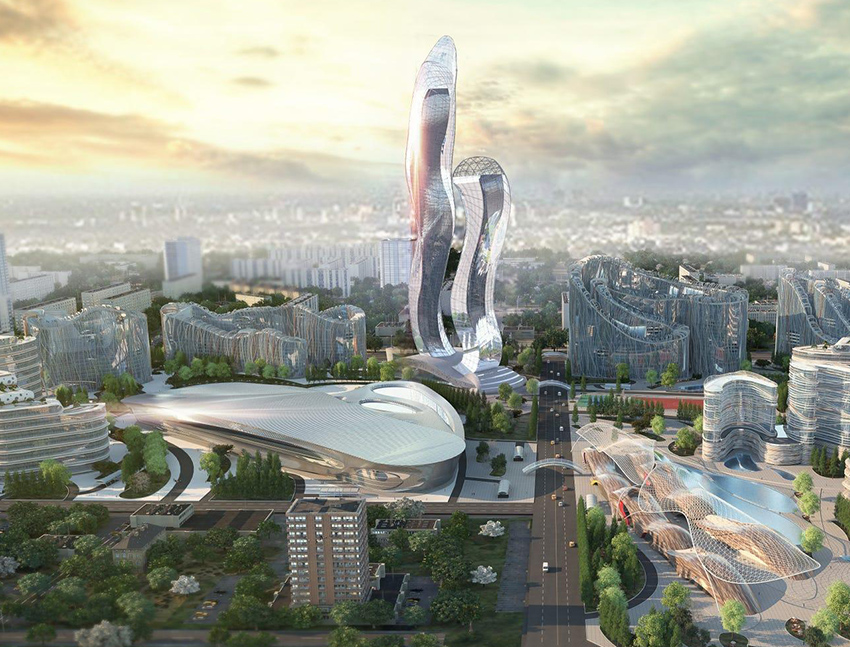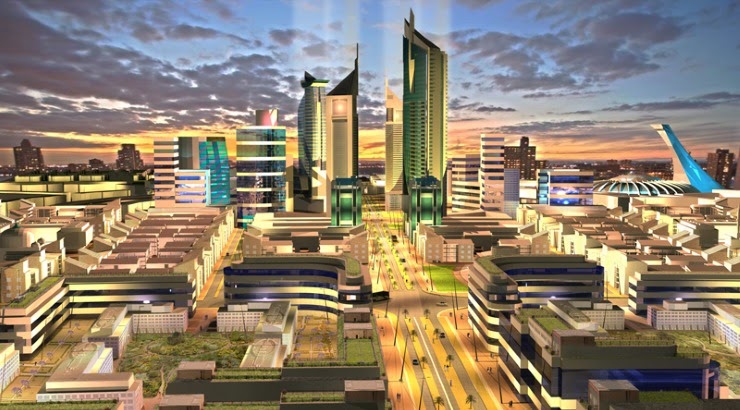Introduction
African megacities, from Accra to Cape Town to Nairobi, are rapidly becoming hubs of technological innovation. As urbanization rates rise, these cities are implementing smart city initiatives and creating data-driven solutions to address the challenges of overpopulation. By leveraging technology and data, African cities are positioning themselves as the tech and data hubs of the future.
Why Africa is Primed for Smart Cities
According to Deloitte, Africa’s potential to lead in Smart City initiatives stems from several key factors:
1. Limited Legacy Infrastructure: African cities often lack the outdated infrastructure that can hinder technological upgrades, making it easier to implement new technologies.
2. Growing Middle Class: The rise of the African middle class, with increased disposable income, drives demand for modern urban solutions.
3. Rapid Urbanization: Africa is expected to be the fastest urbanizing continent by 2020, necessitating efficient urban planning.
4. Entrepreneurial Spirit: African nations are known for their innovative and entrepreneurial approach to problem-solving.
5. Mobile Connectivity: Africa leads in mobile subscriber growth, with mobile penetration reaching 72% across the continent.
These factors, combined with collaboration between mobile operators, public sector organizations, and private enterprises, are driving Smart City initiatives across Africa.
Cape Town: A Leader in Real-Time Data and IoT
Cape Town has emerged as a pioneer in using IoT and real-time data analysis to address urban challenges. South Africa faces significant issues with electricity, water, and waste management, which Cape Town is tackling through smart sensors and data-driven solutions.
Smart Sensors and Real-Time Data
IoT sensors deployed throughout Cape Town gather real-time data from various sources, including water meters, electricity meters, waste bins, traffic lights, and streetlights. Network providers like Sqwidnet facilitate data collection and sharing across these networks. Sqwidnet now covers all eight metropolitan areas in South Africa, with plans to expand to all national roads and additional cities, aiming for 85% population coverage by the end of 2017.
Smart City Pillars
Cape Town’s Smart City initiative focuses on four main pillars:
1. Open Data Portal: The city makes all data collected from its citizens publicly available, promoting transparency and data-driven decision-making.
2. Digital Inclusion: Free Wi-Fi on city buses ensures that all residents have access to digital resources.
3. Emergency Response: The Cape Town Emergency Dispatch Centre integrates fire and rescue, law enforcement, and disaster risk management into a unified public safety solution.
4. Remote Utilities Meter Reading: This system reduces manual data entry errors and helps decrease water usage and energy consumption by 10%.
IBM’s Fire Management Portal is another innovative project, using data from Cape Town’s open data platform and historical weather maps to predict fire incidents, enhancing emergency preparedness.
Nairobi’s Konza Technopolis: The Silicon Valley of Africa
Kenya’s Smart City efforts are epitomized by Konza Technopolis, located 60km from Nairobi. Known as the “Silicon Savannah,” Konza aims to be a hub for technological innovation, leveraging data from smart devices and sensors embedded in roadways and buildings.
Technological Innovations
Kenya has successfully implemented large-scale technological solutions, such as Safaricom’s M-Pesa mobile money system and m-Kopa’s pay-as-you-go solar energy initiative. Konza’s Smart City plan includes providing residents with direct access to data on traffic, emergency warnings, and energy and water consumption, promoting sustainable living and citizen participation.
Other Smart City Projects in Africa
Other ambitious Smart City projects across Africa include Nigeria’s Eko Atlantic, Accra’s Hope City, and Kigali’s Vision City. These tech-forward hubs are being built on the outskirts of existing cities, offering scalable housing and IoT-driven infrastructure.
Conclusion
African cities are uniquely positioned to become leaders in Smart City development. By harnessing the continent’s rapid urbanization, entrepreneurial spirit, and mobile connectivity, cities like Cape Town and Nairobi are transforming into tech and data hubs of the future. These initiatives not only address the challenges of urbanization but also pave the way for sustainable and inclusive urban growth.
Click here to learn more about the MTi Smart Things services.



